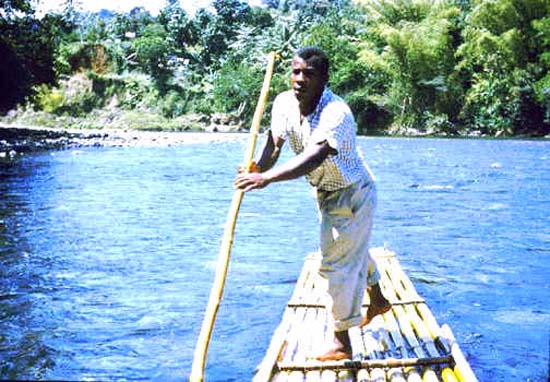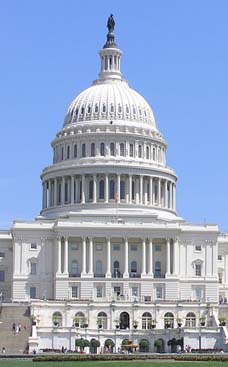2006.11.03: November 3, 2006: Headlines: COS - Chad: COS - Jamaica: Disabilities: Crisis Corps: Peace Corps Press Release: Chad RPCV David Grant is in Jamaica in the Crisis Corps working to improve special education curriculum in schools
Peace Corps Online:
Peace Corps News:
Peace Corps Library:
Disabilities:
January 23, 2005: Index: PCOL Exclusive: Disabilities :
2006.11.03: November 3, 2006: Headlines: COS - Chad: COS - Jamaica: Disabilities: Crisis Corps: Peace Corps Press Release: Chad RPCV David Grant is in Jamaica in the Crisis Corps working to improve special education curriculum in schools
Chad RPCV David Grant is in Jamaica in the Crisis Corps working to improve special education curriculum in schools

When the Jamaican government recently looked to include special needs curriculum into the school systems, Grant, who holds a Ph.D. in international/intercultural education from USC, seemed a perfect fit to help monitor the curriculum and ensure uniformity in teaching methods and delivery. Partnering with the Jamaican Association for Mental Retardation (JAMR), Grant helped monitor the way special education students were taught in classrooms across Jamaica. He implemented a system where individual education plans were made for each student. Grant acted as a resource for teachers when it came to special education, and he created a successful mentoring program, connecting local businesses with special education students.
Chad RPCV David Grant is in Jamaica in the Crisis Corps working to improve special education curriculum in schools
Jamaica Looks to Peace Corps to Help Those With Disabilities
In recognition of Disability Awareness Month, which just ended, this is the latest feature on Volunteers making a difference.
WASHINGTON, D.C., November 3, 2006 – To most, Jamaica is an ideal vacation destination, but for recently returned Crisis Corps Volunteer David Grant, Jamaica is a country making new efforts to improve special education curriculum in schools.
"Every teacher I have talked to around the U.S., as well as teachers from other countries, would love to share their skills in developing countries where formal special education teacher training doesn't exist," Grant said.
Ever since Grant's time as a Peace Corps Fellow at the University of Southern California, Grant has seized the opportunity to "work the trenches." So when the Jamaican government recently looked to include special needs curriculum into the school systems, Grant, who holds a Ph.D. in international/intercultural education from USC, seemed a perfect fit to help monitor the curriculum and ensure uniformity in teaching methods and delivery.
Leaving his family to return to Peace Corps' Crisis Corps program and make a difference, Grant landed in Jamaica knowing he could only help by starting at square one. To learn about Jamaica's educational process, he would have to ask, so he talked to everyone who would take the time, from his landlady to students to the Minister of Education.
Grant also began watching Jamaican news and reading the newspaper to become fully immersed in Jamaica's media culture. He examined Jamaica's educational codes and curriculums and realized that the majority of the materials had not been updated since 1981 — and included little mention of special education. After he completed his field research, Grant developed a plan of action that included measurable goals for Jamaican schools and special education curriculum.
Partnering with the Jamaican Association for Mental Retardation (JAMR), Grant helped monitor the way special education students were taught in classrooms across Jamaica. He implemented a system where individual education plans were made for each student. Grant acted as a resource for teachers when it came to special education, and he created a successful mentoring program, connecting local businesses with special education students.
A strong believer that a hands-on approach is best, Grant emphasized the importance of individual accommodations. Knowing that most schools had scarce resources, Grant proposed smallest adjustments that could make the difference, for example, a student in an art class was so overwhelmed by his wheelchair that he could barely see the tabletop, let alone the paper. Grant encouraged the art teacher to reposition the student so he could fully participate in the activity, and ultimately, watch his strokes color the page.
"Success is predicated on creating higher levels of performance expectations of the disabled on the part of the local communities, especially families, teachers and local business people," Grant said. "Once the regular presence of the disabled on the job is accepted, the rest comes more easily."
After graduating from college and beginning a media career, Grant said he had an early "mid-life crisis" and believed the Peace Corps was a doable goal and applied. Grant remembered how his high school history teacher had passionately described her Peace Corps experience. Accepted in 1990, Grant packed his bags and headed for Chad, a country in central Africa.
"My professional path, however rambling, was started in Chad as a Volunteer," Grant said. "I had no idea what to expect. It was an adventure and I leapt into the unknown."
In Chad, Grant was trained in water and sanitation education, implementation, and programming skills. He produced a manual in both French and English about how to maintain water pumps. He also taught English in N'Djamena, the capital. After his Peace Corps service was over, Grant stayed in Chad for four additional months and taught English to UNICEF Volunteers.
Upon his return to the States, Grant began a lifelong career in the field of special education. He worked as a special education teacher in Los Angeles for five years. He continued his quest to help students and took a position as a special education teacher with the Georgia Department of Juvenile Justice. His career later moved him back west, to Arizona, where he worked for several organizations that serve special education needs, including a position as vice president for vocational programs in the Arizona office of Easter Seals.
"I wanted to gain the experience and training in the U.S., and then take the rest of my life to apply the skills overseas where it's most needed," said Grant.
Since Crisis Corps' inception in 1996, hundreds of returned Peace Corps Volunteers have taken the opportunity to use their invaluable skills and experience to address ongoing community needs in over 40 different countries. Crisis Corps Volunteers work on short term projects, utilizing the skills they learned as Peace Corps Volunteers and in post service careers. To learn more about the Peace Corps' Crisis Corps program, please visit the Crisis Corps site.
Links to Related Topics (Tags):
Headlines: November, 2006; COS - Chad; COS - Jamaica; Disabilities; Crisis Corps
When this story was posted in November 2006, this was on the front page of PCOL:





Peace Corps Online The Independent News Forum serving Returned Peace Corps Volunteers
 | Ron Tschetter in Morocco and Jordan
On his first official trip since being confirmed as Peace Corps Director, Ron Tschetter (shown at left with PCV Tia Tucker) is on a ten day trip to Morocco and Jordan. Traveling with his wife (Both are RPCVs.), Tschetter met with volunteers in Morocco working in environment, youth development, health, and small business development. He began his trip to Jordan by meeting with His Majesty King Abdullah II and Her Majesty Queen Rania Al Abdullah and discussed expanding the program there in the near future. |
 | Chris Dodd's Vision for the Peace Corps
Senator Chris Dodd (RPCV Dominican Republic) spoke at the ceremony for this year's Shriver Award and elaborated on issues he raised at Ron Tschetter's hearings. Dodd plans to introduce legislation that may include: setting aside a portion of Peace Corps' budget as seed money for demonstration projects and third goal activities (after adjusting the annual budget upward to accommodate the added expense), more volunteer input into Peace Corps operations, removing medical, healthcare and tax impediments that discourage older volunteers, providing more transparency in the medical screening and appeals process, a more comprehensive health safety net for recently-returned volunteers, and authorizing volunteers to accept, under certain circumstances, private donations to support their development projects. He plans to circulate draft legislation for review to members of the Peace Corps community and welcomes RPCV comments. |
 | He served with honor
One year ago, Staff Sgt. Robert J. Paul (RPCV Kenya) carried on an ongoing dialog on this website on the military and the peace corps and his role as a member of a Civil Affairs Team in Iraq and Afghanistan. We have just received a report that Sargeant Paul has been killed by a car bomb in Kabul. Words cannot express our feeling of loss for this tremendous injury to the entire RPCV community. Most of us didn't know him personally but we knew him from his words. Our thoughts go out to his family and friends. He was one of ours and he served with honor. |
 | Peace Corps' Screening and Medical Clearance
The purpose of Peace Corps' screening and medical clearance process is to ensure safe accommodation for applicants and minimize undue risk exposure for volunteers to allow PCVS to complete their service without compromising their entry health status. To further these goals, PCOL has obtained a copy of the Peace Corps Screening Guidelines Manual through the Freedom of Information Act (FOIA) and has posted it in the "Peace Corps Library." Applicants and Medical Professionals (especially those who have already served as volunteers) are urged to review the guidelines and leave their comments and suggestions. Then read the story of one RPCV's journey through medical screening and his suggestions for changes to the process. |
 | The Peace Corps is "fashionable" again
The LA Times says that "the Peace Corps is booming again and "It's hard to know exactly what's behind the resurgence." PCOL Comment: Since the founding of the Peace Corps 45 years ago, Americans have answered Kennedy's call: "Ask not what your country can do for you--ask what you can do for your country. My fellow citizens of the world: ask not what America will do for you, but what together we can do for the freedom of man." Over 182,000 have served. Another 200,000 have applied and been unable to serve because of lack of Congressional funding. The Peace Corps has never gone out of fashion. It's Congress that hasn't been keeping pace. |
 | PCOL readership increases 100%
Monthly readership on "Peace Corps Online" has increased in the past twelve months to 350,000 visitors - over eleven thousand every day - a 100% increase since this time last year. Thanks again, RPCVs and Friends of the Peace Corps, for making PCOL your source of information for the Peace Corps community. And thanks for supporting the Peace Corps Library and History of the Peace Corps. Stay tuned, the best is yet to come. |
 | History of the Peace Corps
PCOL is proud to announce that Phase One of the "History of the Peace Corps" is now available online. This installment includes over 5,000 pages of primary source documents from the archives of the Peace Corps including every issue of "Peace Corps News," "Peace Corps Times," "Peace Corps Volunteer," "Action Update," and every annual report of the Peace Corps to Congress since 1961. "Ask Not" is an ongoing project. Read how you can help. |
Read the stories and leave your comments.

Some postings on Peace Corps Online are provided to the individual members of this group without permission of the copyright owner for the non-profit purposes of criticism, comment, education, scholarship, and research under the "Fair Use" provisions of U.S. Government copyright laws and they may not be distributed further without permission of the copyright owner. Peace Corps Online does not vouch for the accuracy of the content of the postings, which is the sole responsibility of the copyright holder.
Story Source: Peace Corps Press Release
This story has been posted in the following forums: : Headlines; COS - Chad; COS - Jamaica; Disabilities; Crisis Corps
PCOL35100
10


















